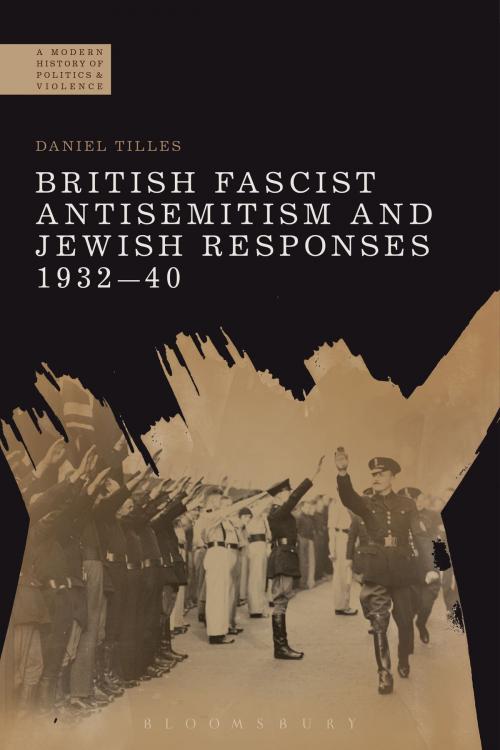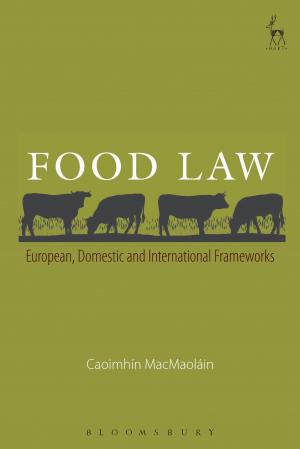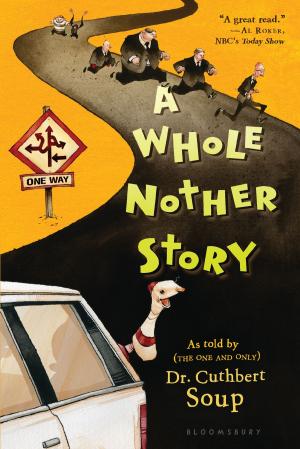British Fascist Antisemitism and Jewish Responses, 1932-40
Nonfiction, History, European General, Modern, 20th Century, Social & Cultural Studies, Political Science| Author: | Dr Daniel Tilles | ISBN: | 9781472505682 |
| Publisher: | Bloomsbury Publishing | Publication: | November 20, 2014 |
| Imprint: | Bloomsbury Academic | Language: | English |
| Author: | Dr Daniel Tilles |
| ISBN: | 9781472505682 |
| Publisher: | Bloomsbury Publishing |
| Publication: | November 20, 2014 |
| Imprint: | Bloomsbury Academic |
| Language: | English |
This book explores the use of antisemitism by Britain's interwar fascists and the ways in which the country's Jews reacted to this, examining the two alongside one another for the first time and locating both within the broader context of contemporary events in Europe.
Daniel Tilles challenges existing conceptions of the antisemitism of Britain's foremost fascist organisation, the British Union of Fascists. He demonstrates that it was a far more central aspect of the party's thought than has previously been assumed. This, in turn, will be shown to be characteristic of the wider relationship between interwar European fascism and antisemitism, a thus far relatively neglected issue in the burgeoning field of fascist studies. Tilles also argues that the BUF's leader, Sir Oswald Mosley, far from being a reluctant convert to the anti-Jewish cause, or simply a cynical exploiter of it, as much of the existing scholarship suggests, was aware of the role antisemitism would play in his fascist doctrine from the start and remained in control of its subsequent development. These findings are used to support the notion that, contrary to prevailing perceptions, Jewish opposition to the BUF played no part in provoking the fascists' adoption of antisemitism. Britain's Jews did, nevertheless, play a significant role in shaping British fascism's path of development, and the wide-ranging and effective anti-fascist activity they pursued represents an important alternative narrative to the dominant image of Jews as mere victims of fascism.
This book explores the use of antisemitism by Britain's interwar fascists and the ways in which the country's Jews reacted to this, examining the two alongside one another for the first time and locating both within the broader context of contemporary events in Europe.
Daniel Tilles challenges existing conceptions of the antisemitism of Britain's foremost fascist organisation, the British Union of Fascists. He demonstrates that it was a far more central aspect of the party's thought than has previously been assumed. This, in turn, will be shown to be characteristic of the wider relationship between interwar European fascism and antisemitism, a thus far relatively neglected issue in the burgeoning field of fascist studies. Tilles also argues that the BUF's leader, Sir Oswald Mosley, far from being a reluctant convert to the anti-Jewish cause, or simply a cynical exploiter of it, as much of the existing scholarship suggests, was aware of the role antisemitism would play in his fascist doctrine from the start and remained in control of its subsequent development. These findings are used to support the notion that, contrary to prevailing perceptions, Jewish opposition to the BUF played no part in provoking the fascists' adoption of antisemitism. Britain's Jews did, nevertheless, play a significant role in shaping British fascism's path of development, and the wide-ranging and effective anti-fascist activity they pursued represents an important alternative narrative to the dominant image of Jews as mere victims of fascism.















